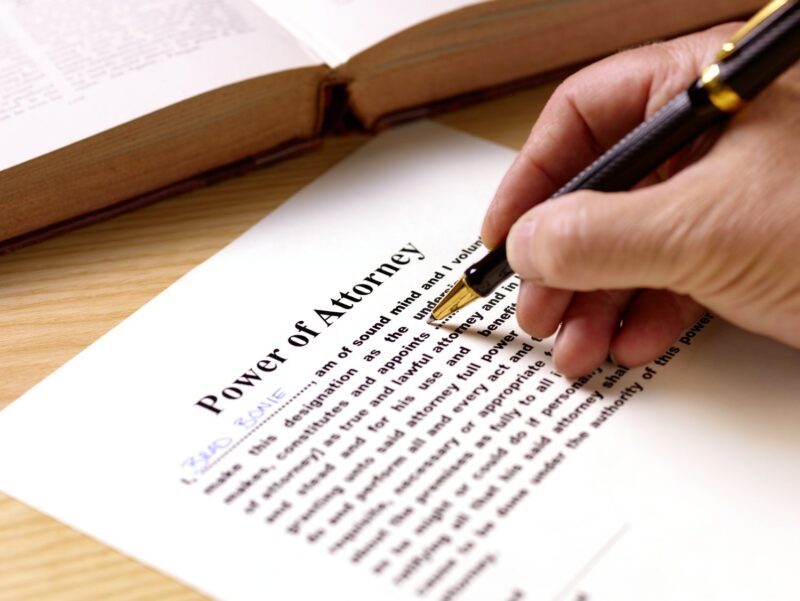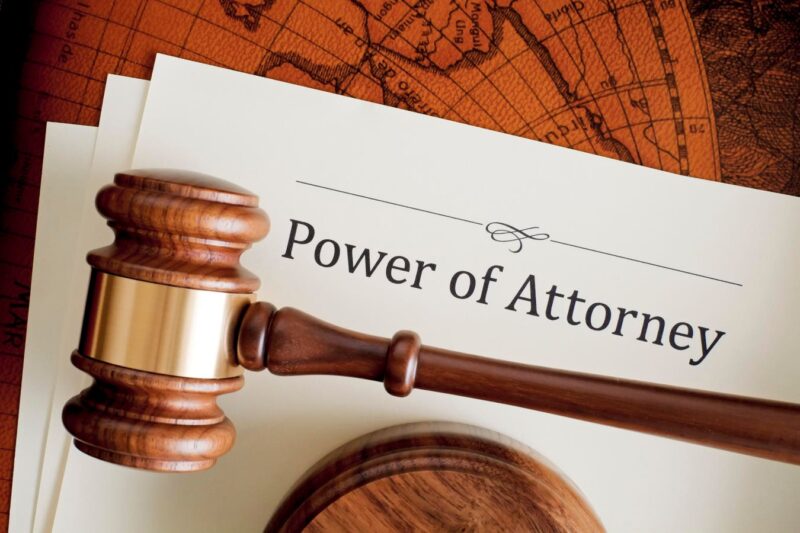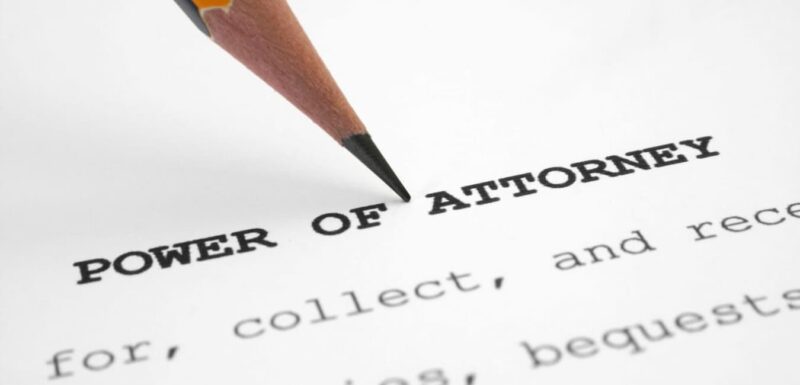Power of Attorney (POA) is a legal instrument empowering one person to act on behalf of another, particularly in instances of illness or incapacitation. This blog navigates the nuances of securing POA for someone unable to make their own decisions.
Understanding POA and its implications is crucial for protecting the interests of those who may not be in a position to manage their affairs. The objective of this post is to provide an insightful, comprehensive guide on how to obtain POA, ensuring that readers are well-equipped to handle such sensitive situations with legal precision and empathy.
Understanding Power of Attorney

Power of Attorney is a pivotal legal designation, authorizing an individual to represent and make decisions for someone else in legal, financial, or health-related matters. This authority becomes particularly significant when a person is unable to make decisions due to reasons such as illness, injury, or absence.
Understanding the scope and significance of POA is essential, as it plays a critical role in managing the affairs of those incapacitated. It ensures continuity in handling personal, financial, and legal matters, providing peace of mind to the person affected and their loved ones.
Types of Power of Attorney
There are various types of Power of Attorney, each serving different needs and circumstances. General POA grants broad powers to the agent, covering a wide range of decisions. Specific POA, on the other hand, is limited to certain tasks or situations. The most crucial type in cases of incapacitation is the Durable Power of Attorney.
This kind remains in effect even when the individual becomes incapacitated, ensuring that decision-making continues uninterrupted. Understanding which type to use is key in effectively managing the legal and personal affairs of someone who can no longer do so themselves. For the best service in all departments, you should contact lawyers such as Derfel Estate Law.
When is Power of Attorney Needed?
Power of Attorney becomes essential in situations where an individual may become incapacitated due to illness, injury, or mental decline. These circumstances render a person unable to manage their affairs. Having a POA in place beforehand is crucial.
It ensures that there is a trusted individual legally empowered to make decisions, avoiding potential legal complications or delays in critical decisions. This foresight is particularly important for aging individuals or those with medical conditions that might lead to diminished capacity, offering a safeguard for both their personal welfare and financial matters.
Choosing the Right Agent
Selecting an agent or attorney-in-fact is a decision of immense trust and responsibility. The ideal candidate is someone who is not only trustworthy but also capable of handling the responsibilities that come with this role. It could be a family member, a friend, or a professional. The chosen agent should have the necessary skills and temperament to make sound decisions in various scenarios.
Consider their ability to handle financial matters, make healthcare decisions, and act in the best interest of the person granting the POA. This choice is pivotal in ensuring that the rights and preferences of the incapacitated person are respected and upheld.
Legal Requirements for Power of Attorney

Creating a valid Power of Attorney involves adhering to specific legal requirements, which can vary from state to state. Generally, the person granting the POA must be mentally competent at the time of signing.
The document must clearly state the powers granted and may require specific language or clauses depending on the type of POA. It’s essential to consult legal guidance to ensure that all legal prerequisites are met.
This may include witnessing requirements, specific signing protocols, and additional state-specific mandates. Ensuring legal compliance is critical for the POA to be recognized and enforceable.
Creating a Power of Attorney Document
A Power of Attorney document must clearly outline the scope of authority granted to the agent. This includes specifying the type of decisions the agent can make, such as financial transactions, medical care, or property management.
A simple template or checklist can be invaluable in creating this document, ensuring all necessary components are included. The document should be precise, clearly stating the commencement and, if applicable, the termination of the agent’s powers. Clarity in the POA document is key to preventing misunderstandings and legal challenges in the future.
Signing and Notarizing
The process of signing the POA document is a crucial step in its legalization. The person granting the POA must sign the document in the presence of a notary or witnesses, as required by state law. Notarizing the document is often necessary to confirm the identity of the person granting the POA and to validate their signature.
This process ensures the legal validity of the document, making it enforceable. The act of notarizing also adds a layer of protection against potential fraud or disputes regarding the authenticity of the document.
Registering the Power of Attorney
In some states, registering the Power of Attorney is a necessary step for it to be recognized legally. This registration process typically involves filing the signed and notarized document with a specific state office, such as a county clerk or recorder’s office.
The requirements and procedures for registration can vary, so it’s important to understand the specific needs of your state. Registering the POA ensures that it is a matter of public record, which can be crucial in legal or financial transactions where proof of the agent’s authority is required.
Responsibilities of an Attorney-in-Fact

The appointed agent under a Power of Attorney has significant duties and limitations. They are legally obligated to act in the best interest of the incapacitated person and must manage affairs with the utmost care and loyalty.
This includes making decisions that align with the person’s wishes and avoiding conflicts of interest. The agent is also limited by the scope of authority granted in the POA document and must adhere to any specific directions or limitations stated therein. Understanding these responsibilities is crucial for the agent to perform their role effectively and ethically.
As we navigate the legal intricacies of supporting loved ones in challenging situations, understanding your rights extends beyond the realm of guardianship, encompassing essential knowledge on addressing financial challenges—a topic explored in greater detail in another invaluable resource.
Revoking Power of Attorney
A Power of Attorney can be revoked under certain circumstances, such as if the person granting it regains capacity or wishes to appoint a different agent. The process for revoking a POA involves creating a written revocation notice and informing the current agent and any institutions or parties that were relying on the original POA
. The revocation must also adhere to state laws, including any filing or notification requirements. The person revoking the POA needs to understand the legal process to ensure the revocation is effective and prevents any future unauthorized use of the document.
Conclusion and Recap
In conclusion, obtaining a Power of Attorney for someone incapacitated is a process that requires careful consideration, legal understanding, and foresight.
From choosing the right agent to understanding the legal requirements and creating a comprehensive document, each step is vital in ensuring the well-being and proper management of affairs for the incapacitated individual. This guide has provided key insights into each aspect of the process, emphasizing the importance of planning and being informed.
Related Posts:
- How to Respond to a Debt Collection Letter: 10 Legal…
- How to Get More Currency in PoE: 10 Tips at Any…
- Can EU Citizens Get Married in the UK? Tips and…
- 12 Tips for Planning a Team Building Event: Expert…
- Choosing a Family Pet: What Is the Easiest Dog to…
- Tips for Maximizing Compensation in Your Long-Term…














